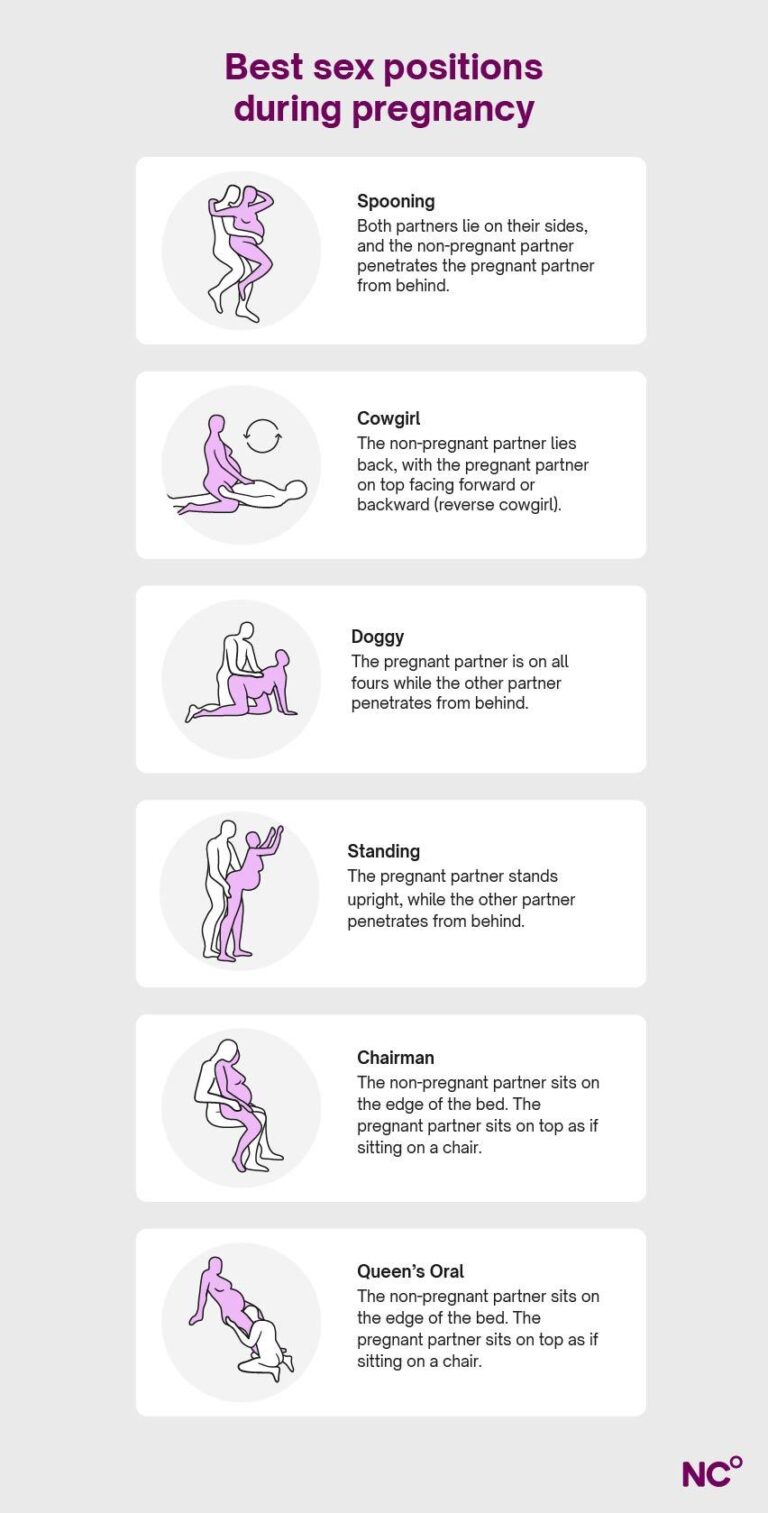Preserving Intimacy During Pregnancy: Professional Guidance for Comfort and Safety
Recommended Sexual Positions for Comfort and Safety Throughout Pregnancy
As pregnancy advances, many couples look for ways to maintain closeness while ensuring the well-being of both the mother and the developing baby. Healthcare experts suggest sexual positions that reduce abdominal pressure and avoid strain on sensitive areas. Positions where the pregnant partner lies on their side, such as the side-lying position, are widely endorsed for their comfort and intimacy. Another favored choice is the woman-on-top position, which allows the pregnant partner to control the pace and depth, minimizing discomfort and potential risks.
Here is a brief summary of preferred positions, their benefits, and safety recommendations based on the latest expert insights:
| Position | Benefits | Safety Guidelines |
|---|---|---|
| Side-Lying | Reduces pressure on the abdomen; promotes healthy circulation | Use pillows for extra support and stability |
| Woman-on-Top | Gives control over movement and depth; lessens pelvic strain | Avoid deep penetration to prevent discomfort |
| Edge of the Bed | Suitable for later pregnancy stages; minimal belly contact | Ensure secure footing to avoid slips |
| Seated | Encourages closeness; reduces strain on the back | Choose chairs with strong back support |
Maintaining honest communication is vital—partners should be sensitive to any discomfort or pain and adjust positions, incorporate cushions, or change pace to ensure a pleasurable and safe experience throughout pregnancy.
Understanding the Physical and Emotional Impact of Pregnancy on Sexual Intimacy
Pregnancy brings about numerous physical and emotional changes that can influence sexual experiences. Hormonal fluctuations may increase sensitivity or, conversely, cause tiredness and reduced libido. Physical transformations such as an expanding abdomen, breast tenderness, and enhanced pelvic blood flow can affect comfort during intimacy. It’s important to recognize that these effects differ greatly among individuals; what feels pleasurable for one person might be uncomfortable for another.
Healthcare professionals emphasize the need for adaptability and open dialogue during this time. Couples are encouraged to experiment with various positions and rhythms to accommodate evolving comfort levels. Additionally, medical advice highlights the importance of monitoring for warning signs like unusual pain or bleeding and seeking prompt medical attention if concerns arise. The table below outlines common pregnancy-related changes alongside expert recommendations:
| Pregnancy Change | Effect on Sexual Activity | Professional Advice |
|---|---|---|
| Increased vaginal blood flow | Heightened sensitivity; possible discomfort | Use gentle touch and lubricants |
| Fatigue and low energy | Lowered libido and endurance | Schedule intimacy during peak energy periods |
| Physical changes (e.g., belly growth) | Necessity for position adjustments | Try side-lying or seated positions |
| Emotional fluctuations | Variable desire and responsiveness | Keep communication open about feelings |
- Practice patience: Take time to find what feels best as pregnancy progresses.
- Prioritize comfort: Use pillows or cushions to support both partners.
- Stay informed: Regularly consult healthcare professionals to ensure safety for mother and baby.
Recognizing When to Avoid Sexual Activity and Key Warning Signs
Certain situations during pregnancy require abstaining from sexual intercourse to safeguard maternal and fetal health. Medical authorities recommend refraining from sex if signs of preterm labor, vaginal bleeding, or unexplained abdominal pain are present. Conditions like placenta previa—where the placenta covers part or all of the cervix—or premature rupture of membranes (water breaking) demand strict avoidance of intercourse to prevent infection and complications.
Being alert to early warning signs is crucial. Expectant parents should watch for symptoms such as:
- Persistent cramping or contractions
- Unusual or increased vaginal discharge
- Bleeding or spotting after sexual activity
- Fever or chills indicating possible infection
If any of these symptoms arise, immediate consultation with a healthcare provider is essential to ensure prompt care and peace of mind during pregnancy.
| Warning Sign | Recommended Action |
|---|---|
| Bleeding or spotting | Stop sexual activity; contact OB-GYN immediately |
| Preterm contractions | Seek urgent medical evaluation |
| Ruptured membranes | Avoid intercourse; proceed to hospital |
| Signs of infection | Obtain professional diagnosis and treatment |
Building Trust: Communication and Consent for Expecting Couples
Clear and compassionate communication is the cornerstone of a fulfilling and safe sexual relationship during pregnancy. Couples should cultivate a space where both partners feel safe expressing their desires, limits, and concerns openly. This transparency reduces anxiety and strengthens emotional bonds, which positively affects physical intimacy. Experts suggest asking straightforward questions like, “Are you comfortable?” or “How does this feel for you?” while practicing attentive and nonjudgmental listening.
Consent is an ongoing conversation rather than a single event. Given the physical and emotional shifts throughout pregnancy, regularly revisiting boundaries is crucial. To facilitate this, specialists recommend the following communication techniques:
- Conduct emotional check-ins: Set aside time to discuss feelings beyond physical intimacy.
- Respect changing needs: Be adaptable and willing to modify activities based on comfort and medical advice.
- Use clear, affirmative language: Encourage both partners to express enthusiastic consent or decline without hesitation.
| Communication Practice | Significance |
|---|---|
| Active listening | Fosters trust and mutual understanding |
| Regular check-ins | Adapts to evolving comfort and needs |
| Positive body language | Enhances emotional safety and connection |
Conclusion: Fostering Safe and Rewarding Intimacy During Pregnancy
In summary, cultivating a secure and satisfying sexual relationship throughout pregnancy is both possible and beneficial when guided by professional advice. Open dialogue with healthcare providers is essential to address individual health factors and potential risks. By following recommended precautions, staying well-informed, and maintaining honest communication, couples can deepen intimacy and support the health of both mother and baby during this transformative time. For tailored advice and the latest guidelines, consulting a qualified medical professional remains indispensable.




